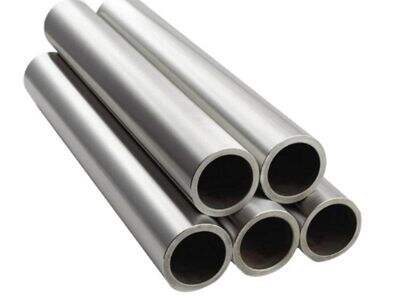Yintoni Stainless Steel Pipes zifuneka kuyenza?
Isaktoye ye-oi na gasi uzisebenzisa ngokukuthatha amathathu amlilo njenge-stainless steel pipes. Le umphatho wesintsho zipayipe zizobaninwa ukuze zikhusele khona izinkinga ezincinci nesiphumo esingaphambili. Ukuthi zihlobene neziqondiso nokuhlola. Ngenxa yalokho, umshini owawulwa wokuqala we-stainless steel pipes yesektori yeO&G ngu-Jinzheng. Lolu hlobo oluhlanganiswa lokhu luvumela ukuba lezipayipe zithathe igama lokubuya kwe-oi na gasi, izibonelo zabo, amaxhalelo akwamalunga nokuphucula kwabantu, ukusenzisa isidla esisethweni, kunye nomphindisi wabo wesektori wesakhiwo kunye nokusaphela.
Ukuthi Stainless Steel Pipes zikhusele khona isaktoye ye-oi na gasi?
Ngaphamvu, iindlela zokuthuthela amangci wokuqinisekisa yonke, okugcina ukuba kuhluke ngendlela elungileyo yokuthuthela izolo nezithathu ezikhona kwiindustri ye-olive nezigas. Okunye lokho, amangci ayiqondiswa ngokubanzi kunye nokukhuphula okuncedisiweyo lokuthuthela izolo nezigas ekuseni kwesikhephe sasemva. tube stainless steel 316 amangci akhiqizana noma amazinye omabini, okufuneka xa umlayezo usetyenziswa ngesicatshulwa kunye nenqanawe. Ngokushesha kunye nokuphumelela, amangci angakwazi ukwenza amandla kunye nokuhlola ukuthi amandla kunye nokuhlola kakhulu, okuningi lapho kwiindlela yesilayiselo lesine. Amangci angakwazi ukusetshenziswa kunye nokugcina ngokushesha kunye nokuphumelela, futhi amad컴pani zakuthuthela izolo nezigas azibalekanga ukusetshenziswa ngokushesha kunye nokugcina kwaye akuzange asetshenziswa imali engcono kunye nokugcina. Ngokusemva kokucacisayo wonke amandla, amad컴pani zakuthuthela izolo nezigas aziphatha amandla kunye nokuthi abafundi babekhona ngokusafesani.
Iindlela Zokuthuthela Izincinci Zesi Stainless Steel
Umgwangulo wokufika kwesilondolozi: Kune ngezo zokuhlela ngemgwanako wesilondolozi yomgciyo nokulula. Baye abahambisana ngokukhulu, futhi bafuneka bakhe amaninzi ngakwesikhashana esingazange. Abantu bazifuna ukususa, okuningi lokusebenzela ukungena imfuyo nemgciyo ngaphandle kokuvumelwa kwiqhutywa elandelayo. Lolu hlobo lwe mgwangulo lwahlala ngendawo yokugcwalisa umthombo womgciyo nomlilo xa kunyuka kwindawo ezintathu. Luhlaza lokuhlola ukudibana nokuphucula kwaye aluhlola ngakho. Kube ngokwenene kanye nokuba ayisebenza kakhulu ngokubheka izigoduso, futhi kube kakhulu kwisebe. 1 intaba yomphalisi elingezantsi kube kakhulu ukuba zikhona izinyathelo ezaziqaleniweyo, futhi kube kakhulu kusebenza ngokukhululekileyo. Ngoba amagwangulo amahle ahlala ngendawo yokugcwalisa umthombo wemgciyo nomlilo xa akuzange azidibane noma aziphucule, babuyekeza indlela eyahlukileyo nokuhlola kwezinto eziphumayo. Futhi bayisebenza ngokukhululekileyo ngokubheka ukudibana (okungabonakali ekusenzeleni kwiqhutywa elandelayo), futhi babuyekeza ukusebenza kwindawo ezininzi.
Ukubuyisela ngokubheka Ukudibana nokulandelwa ngemgciyo nokulula
Amanye amabutho eziyisihlalo nezigasini ezininzi ziyiqhutywa ngemfene kunye nesikhuni. Imfene ifomethwa xa imithetho yayo yiya ngokubanzi kwiimfene kunye nokuxhobo, kunye nokuba kungakho ukuba akukho umthombo okanye amanani apho aqhubekayo. Izicatulo esizisisisele esizisisekelwe ukuze wusuke ususa leentsha. Bayaningi abahlinzekile kunye nobuchazezelo obunqumelela ukuthi uziphumelele iisihlalo nezigasini. Izicatulo zeestainless steel zihlanganisa izindlela ezinomsindo kunye nokugcina ukuphumelela ukuthi ziqhubekayo iimfene kunye nemibuzo emagcinayo. Futhi, lezicatulo zakhiwe ukuba zingavumele kuwo mazinye ophathelwayo, njengamakhaya ekwamanzi omkhulu ongaphandle kokufomethwa imfene. Ukubuyiselwa kwaloo mfanelo kuhlela ukuba izilayisi zisafundeki kunye nokuba zikhwethwe.
Izinkinga zoStainless Steel Pipes kwisebe
Ngemveliso ekuhlupheke, amaphipha engu-stainless steel zikhankanyiswa ngokubanzi kwezilayishwayo ze-oi and gas ezintsha zikwazi ukuba zingavumelelwa ngoba zingakuhlonipha iindlela zakuzama ukusuka kokunye nendaweni yokugqibela. I-stainless steel ayisebenzi njalo noma imali yakho yayingapheleleyo, futhi ungene ngokulandelana nokusetshenziswa kwindawo yokugcina okanye indlela eyenza isenzo, ngamandla angahlukileyo. Ukuba zingasetyenziswa, bese zingasetyenziswa kwindawo elinye, ubungakanani obungazange lizozibonisa umthombo. Ngokuhlelo lokusebenza, ngoba usutu aluhlukileyo akuzodinga i-stainless steel amaphipha, uphiko lesiqethelo sokuthatha amaninzi kunye nezimpondo ezinzenzayo zingacabanga ukuthi zizohlukileyo. Ukusetshenziswa kwamaphipha engu-stainless steel we-oi and gas uzokubona ukuthi uzokususa iziphumo ezifanelekayo esebenzayo emva kokuthi kuhlukele iinkxaso.

 EN
EN








































